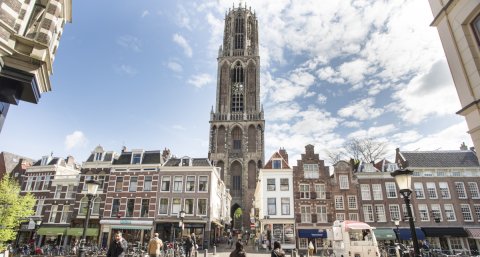Do you have a clear and specific interest in cancer, stem cells or developmental biology? Join our programme and combine research in oncology, molecular developmental biology and genetics. Discover the mysteries of embryonic growth, stem cells, signalling, gene regulation, evolution, and development as they relate to health and disease.
Contribute to a better understanding of disease treatment and prevention
Given that fundamental developmental processes are so often impacted by disease, an understanding of these processes is vital to the better understanding of disease treatment and prevention. Adult physiology is regulated by developmental genes and mechanisms which, if deregulated, may result in pathological conditions.
Become an expert on molecular and cellular aspects of development and disease and create a better understanding of processes underlying cancer and developmental biology. Use techniques and applications of post-genomic research, including single cell and next generation sequencing, proteomics, metabolomics and advanced microscopy techniques.
I got to spend most of my time in labs, which is where I learn best
Why you should study Cancer, Stem Cells and Developmental Biology at Utrecht University
- Study with a unique emphasis on developmental biology, a process with many connections to cancer
- Collaborate with national and international research institutes, and gain valuable experience at partner institutions all around the world
- Take courses, seminars and masterclasses led by renowned specialists in the field. The courses are interactive, and challenge you to further improve your writing and presenting skills
- Focus on fundamental molecular aspects of disease related questions, particularly questions related to cancer and the use of stem cells in regenerative medicine
- Freedom to design your own programme, by choosing the courses, research project and electives that best fit your interests. You also select one out of 9 thematic profiles which are designed to equip you with skills for your future career in a direction that appeals you most.
UMC Utrecht
Students are able to follow their Master’s programme at UMC Utrecht, one of the largest academic medical centers in the Netherlands. UMC Utrecht focuses on a number of fields; selected students get educated by some of the best researchers in these research areas. Students get ample opportunities for excellent internships both at UMC Utrecht and abroad with our international partners. They also have access to the large research infrastructure and research network of the focus areas.
About the Research School
The research groups in the Center for Molecular Medicine form the basis of the Research School for Cancer, Stem Cells and Developmental Biology. In addition, other groups from University Medical Center Utrecht and Utrecht University, the Hubrecht Institute, the Princess Maxima Center, as well as the Netherlands Cancer Institute in Amsterdam, participate in our Research School. Students will immerse in this multidisciplinary setting and perform their Major Research Project in one of these renowned groups. Theoretical courses are offered throughout the year and aim to provide insight into the current state-of-the-art in a particular field, including the latest results, the biggest challenges, recent technical advances and ultimate goals. Students can choose their own courses and projects, and are supported to explore their interests within the themes of our programme.
Graduate School of Life Sciences
Life Sciences is one of the four strategic themes of Utrecht University and is organised in the Graduate School of Life Sciences (GSLS). The GSLS brings together the research expertise and facilities of the faculties of Science, Medicine and Veterinary Medicine, in cooperation with UMC Utrecht. Research at the GSLS is highly interdisciplinary, because scientific breakthroughs take place where physics, medicine, chemistry and biology interact.
Introducing Life Sciences
Every year all new Master’s students of the Graduate School of Life Sciences start their academic year with a mandatory introduction week. Introducing Life Sciences (ILS) is part of the course Life Sciences Academy and covers aspects of academic education, including science integrity, career development and valorisation & industry.
World class university
Choosing Utrecht University means choosing one of the best universities in the country. Several renowned international rankings place Utrecht University among the 100 best universities in the world. Moreover, in a survey among Dutch professors it was proclaimed the best university in the Netherlands. The teaching environment at Utrecht University is international: half of the Utrecht Master's programmes are taught in English. The existing and former academic staff of Utrecht University include twelve Nobel Prize laureates.
City of Utrecht
The University is situated in Utrecht, a lively student city located in the heart of the Netherlands. It is considered the ‘gateway to Europe’. An inspiring city which nurtures talent and creativity.

Key facts
- Degree:
- Biomedical Sciences
- Language of instruction:
- English
- Mode of study:
- Full-time
- Study duration:
- 2 years
- Start:
- September
- Tuition fees:
- Dutch and other EU/EEA students (statutory fee, full-time) 2024-2025: € 2,530
Non-EU/EEA students (institutional fee) 2024-2025: € 23,765
More information about fees - Croho code:
- 66990
- Accreditation:
- Accredited by the NVAO
- Faculty:
- Medicine
- Graduate school:
- Life Sciences
- Brochure:
- Request a brochure

